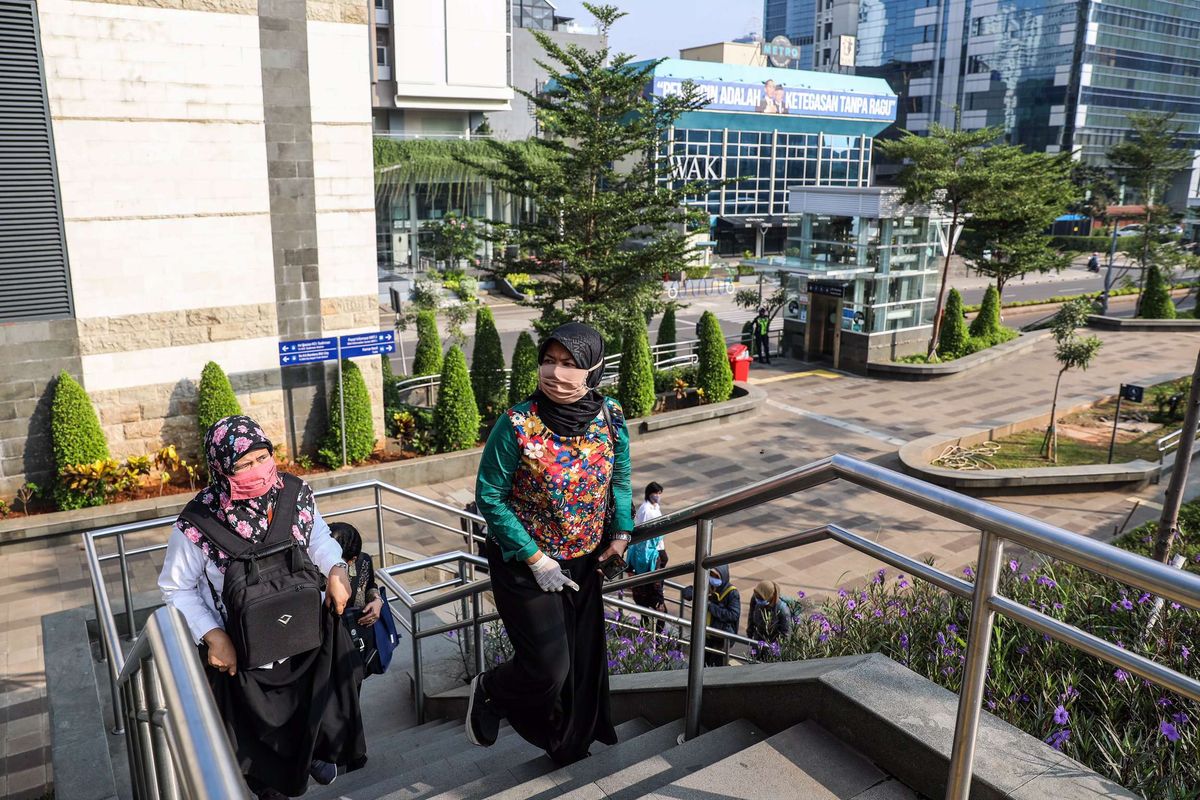Women in Indonesia Have Better Employment Opportunities in Digital Era

JAKARTA, KOMPAS.com – Women in Indonesia are expected to benefit from the effects of the digital era particularly in terms of employment opportunities.
Indonesia’s Minister of Manpower Ida Fauziyah said that the digital era in Indonesia will shift industries and jobs driven by internet access which in turn plays a vital role for the national economy.
“Employment opportunities for women in Indonesia will be bigger as the labor market ecosystem in the country changes.”
Read also: Industry 4.0 Answer to Indonesia’s Economic Ambitions in 2030
By properly harnessing the benefits of digital technology, Indonesian women will enhance their competency skills particularly those working in the country.
The Indonesian government is committed to investing in its female labor force and protecting women through the provision of social assistance programs.
Ida further reasserts her ministry’s dedication to empowering women in Indonesia as well as advocating for the protection of Indonesian women working overseas.
“The protection of Indonesian workers overseas is the country’s responsibility to fulfill the constitutional rights of its citizens.”
Read also: Singapore High Court Acquits Indonesian Maid Accused of Theft by Employer
Indonesia’s Minister of Women Empowerment and Child Protection, I Gusti Ayu Bintang said that the coronavirus pandemic has affected the social and economic conditions for women in Indonesia.
Based on her ministry’s data, as of April 16, 2020, 2,358 workers in the country have been laid off, 762 of them are women.
Government commitment to Industry 4.0 success
The Indonesian government remains committed to accelerating Industry 4.0 in the manufacturing sector through its ‘Making Indonesia 4.0’ program.
According to Eko SA Cahyanyo, Head of Industrial Human Resources Development Agency of the Indonesian Ministry of Industry, the implementation of ‘Making Indonesia 4.0’ could push the Indonesian GDP to $120 billion by 2025.
He referred to a McKinsey study for the figure.
The acceleration of Industry 4.0 in Indonesia could additionally speed up development in the industrial sector thus improving its global competitiveness level.
If this happens, Eko said that Indonesia would realize its goal of becoming one of the top 10 biggest economies in the world in 2030.
Another repeated issue in the country is its import reliance. Eko underlined the Ministry of Industry’s commitment to realizing its import substitution program which has been targeted to reach 35 percent this year.
The program focuses on seven priority sectors namely electronics, automotive, food and beverages, textiles and apparel, pharmaceuticals, medical equipment, and chemical products.
“We have issued restricted bans on registration and licensing, implemented pre-shipment inspection, managed the entry points at ports for certain commodities outside of the Java island and rolled out the “Improving Domestic Production” program”.
(Writers: Ade Miranti Karunia, Elsa Catriana | Editors: Erlangga Djumena, Yoga Sukmana)
Simak breaking news dan berita pilihan kami langsung di ponselmu. Pilih saluran andalanmu akses berita Kompas.com WhatsApp Channel : https://www.whatsapp.com/channel/0029VaFPbedBPzjZrk13HO3D. Pastikan kamu sudah install aplikasi WhatsApp ya.






























